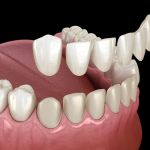- 1-Common-causes-of-gum-bleeding
- 2-Immediate-steps-to-stop-gum-bleeding
- 3-Long-term-remedies-to-prevent-bleeding-gums
- 4-When-to-see-a-dentist-for-bleeding-gums
- 5-Patient-stories-on-managing-gum-bleeding
- 6-Expert-advice-and-resources-for-gum-health
1. Common Causes of Gum Bleeding
Understanding how to stop gum bleeding starts with identifying its causes. Bleeding gums often result from gingivitis, poor oral hygiene, aggressive brushing, or vitamin deficiencies. Other causes can include hormonal changes, medications, or underlying health conditions like diabetes.
2. Immediate Steps to Stop Gum Bleeding
If you notice gum bleeding, gently rinse your mouth with warm salt water to reduce inflammation. Applying gentle pressure with a clean gauze pad can help stop the bleeding quickly. Avoid harsh brushing or flossing until the bleeding subsides.
3. Long-Term Remedies to Prevent Bleeding Gums
Maintaining good dental hygiene is crucial. Brush twice daily with a soft-bristled toothbrush, floss regularly, and use an antimicrobial mouthwash. Eating a balanced diet rich in vitamins C and K supports gum health. Regular dental check-ups help detect and manage problems early.
4. When to See a Dentist for Bleeding Gums
If gum bleeding persists despite home care or is accompanied by pain, swelling, or bad breath, consult a dental professional promptly. Persistent bleeding may signal gum disease requiring professional treatment.
5. Patient Stories on Managing Gum Bleeding
Many patients share success stories after learning how to stop gum bleeding through improved oral care routines. One patient found relief by switching to a sensitive toothpaste and adopting regular flossing, which drastically reduced bleeding episodes.
6. Expert Advice and Resources for Gum Health
For reliable guidance on how to stop gum bleeding and maintain healthy gums, visit Dentistry Toothtruth. Their expert advice and curated dental care products provide comprehensive support for your oral health journey.







 Tacoma Dental Care, Dr. Thi Truong Nguyen, DMD.5.0 (29 review)
Tacoma Dental Care, Dr. Thi Truong Nguyen, DMD.5.0 (29 review) Will County Community Health Center2.0 (177 review)
Will County Community Health Center2.0 (177 review) Isabel Correa DDS inc.3.0 (11 review)
Isabel Correa DDS inc.3.0 (11 review) Dr. Joseph V. Esposito, DDS0.0 (0 review)
Dr. Joseph V. Esposito, DDS0.0 (0 review) All Family Dental and Braces4.0 (689 review)
All Family Dental and Braces4.0 (689 review) KK Dental Edison NJ4.0 (396 review)
KK Dental Edison NJ4.0 (396 review) The Importance of Oral Health Education During Pregnancy for a Healthy Pregnancy
The Importance of Oral Health Education During Pregnancy for a Healthy Pregnancy Best Tips for Brushing Your Teeth Properly for Healthy Gums: Essential Techniques for Oral Health
Best Tips for Brushing Your Teeth Properly for Healthy Gums: Essential Techniques for Oral Health Why Skipping Dental Checkups Can Lead to Bigger Oral Health Problems
Why Skipping Dental Checkups Can Lead to Bigger Oral Health Problems Advantages of Porcelain Dental Restorations
Advantages of Porcelain Dental Restorations How Can Diabetes Cause Tooth and Gum Problems? Preventing and Managing Oral Health Issues
How Can Diabetes Cause Tooth and Gum Problems? Preventing and Managing Oral Health Issues Healthy Habits for Promoting Good Oral Health and Hygiene: Tips for a Healthy Smile
Healthy Habits for Promoting Good Oral Health and Hygiene: Tips for a Healthy Smile